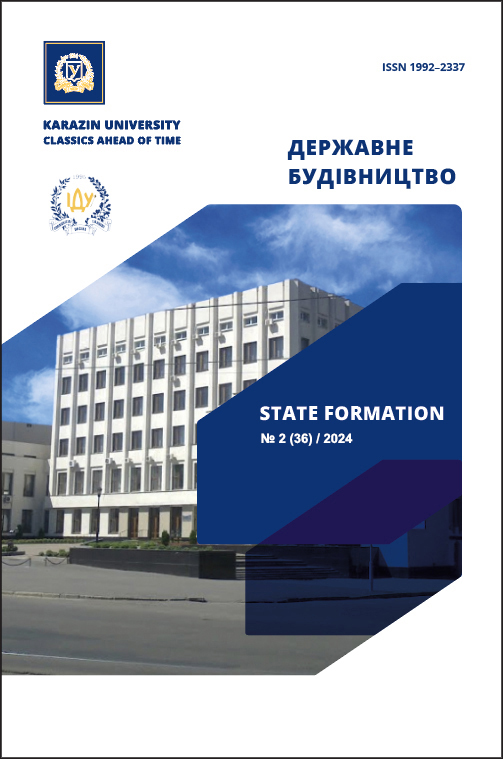Key aspects of the international experience for tetiary age individuals public services.
Abstract
The article analyzes the systemic principles and international experience of involving digital tools in order to provide public services to citizens of the third age, considers the features and unique characteristics inherent in the relevant age group in the context of the degree of use of digital systems and tools to meet personal needs in digital services, determines the prospects for further expanding the boundaries of the use of digital products by citizens of the third age, the role and place of such digital systems in ensuring high-quality two-way communication between the state and citizens of the relevant age group, outlines ways to involve artificial intelligence and further modernization of digital systems in order to increase trust in them on the part of citizens of the third age, proposes a system of solutions for improving and adapting existing processes in the context of building a digital state and digitalization of all spheres of public life in Ukraine, and also considers project situations for implementing new digital solutions in the system of providing public services to citizens of the third age in accordance with the psychological characteristics of such citizens and in accordance with the national policy on increasing the efficiency of the state and developing additional opportunities for in-depth cooperation between the state and citizens of the third age group. civil society. The article takes into account current trends occurring in society under the influence of a gradual increase in the share of digital systems in the provision of services in the private and public sectors and the restructuring of balances in favor of an increase in the share of digital work as a mechanism for providing services and services as a reflection of communities on the global epidemic of coronavirus infection, the post-coronavirus period, the full-scale invasion of Ukraine, as well as a number of other processes that directly or indirectly affect the phenomenon of digital acceleration. Foreign experience of the digital systems intergation into public administration is analyzed. Certain approaches and solutions for their adaptation in the conditions of public administration in Ukraine are proposed.
Downloads
References
Bey, V.K., Shifrina, N.I. (2022). Digital transformations in the public administration system. Bulletin of Transport Economics, no. 3, 57–63. [in Ukraine].
Begey, I.P. (2022). Using the experience of developed democracies to determine the features of public administration reform at the district and regional levels. Aspects of public administration, no. 19, 16–22. [in Ukraine].
Berezhny, V.O. (2021). Modern concepts of public administration. Current problems of public administration, no. 42, 31–38. [in Ukraine].
Hrytsiak, I.A. (2020). Public administration in Ukraine: formation according to European standards. Bulletin of the Academy of the Customs Service of Ukraine. Public administration, no. 6, 5–11. [in Ukraine].
Drucker, P. (2020). Post-industrial society. New industrialization. Anthology, 70–98. Warsaw: Sposrod.
Kaganovska, T.Ye. (2012). The content of doctrinal approaches in administrative law regarding the definition of the essence of public administration. Forum of Law, no. 4, 411–421. [in Ukraine].
Kolesnichenko, I.M. (2021). Development of digital governance in Ukraine: institutional aspect. Business Inform, no. 12, 52–57. [in Ukraine].
Baranov, O., Demkova, M., Dzyuba, S., Yefanov, A., Zhilyaev, I., Klepets, E., Misnikov, Yu., Arvo, O., Popova, T., Ruban, I., Semenchenko, A., Chukut, S. (2019). Concept of development of digital governance in Ukraine. [in Ukraine].

